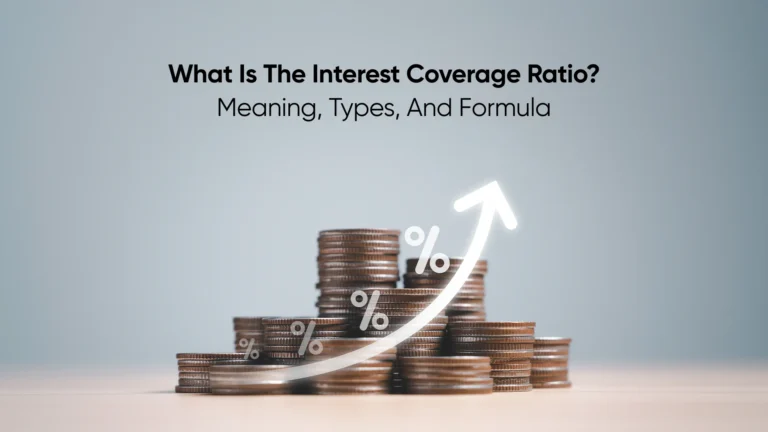What is STD, LSS & DPD in CIBIL And Their Differences?

A credit report has multiple components using which the overall credit score of an individual is determined. If you know these components in detail, managing your finances while maintaining a higher credit rating can become a smooth process. Among these components, STD, LSS, and DPD play significant roles.
STD meaning in CIBIL refers to ‘Standard’, indicating a regular payment history without any defaults. On the other hand, LSS meaning in CIBIL stands for ‘Loan Settled Short’, implying a settlement where the lender agrees to accept an amount less than the total due. Days Past Due or DPD is a critical component in a CIBIL credit report, representing the number of days a payment on a loan or credit card is overdue.
Table of Contents
ToggleWhat is STD in CIBIL? Full-Form & Meaning
STD in CIBIL stands for “Standard.” It is a classification used in credit reports to indicate that a borrower is repaying their loan or credit dues on time, as per the agreed schedule with the lender. An account marked as STD reflects healthy credit behavior and has a positive impact on your CIBIL score. It means the loan is neither overdue nor in default. Financial institutions use this classification to assess your creditworthiness and risk profile before approving new credit applications. Maintaining STD status is essential for a strong credit profile.
Also Read: What Is A Loan Repayment Schedule And Why Is It Important?
What is LSS in CIBIL? Full-Form & Meaning
In CIBIL reports, “LSS” stands for Lender Settled Status. LSS in CIBIL is a classification used by lenders to indicate that a loan account is considered non-recoverable and has been written off as a loss. When a borrower’s account is marked as LSS, it means the lender does not expect to recover the outstanding dues, and the loan is treated as a total loss in their records. This status has a highly negative impact on your CIBIL score and can significantly reduce your chances of getting future loans or credit approvals. Maintaining a clean repayment history is essential to avoid such classifications.
What is DPD in CIBIL? Complete Form & Meaning
DPD stands for “Days Past Due” in your CIBIL credit report. It refers to the number of days a borrower has delayed in making the EMI or credit payment beyond the due date. A DPD of ‘000’ means the payment was made on time, while any other number indicates the number of days delayed. Frequent or long delays can severely impact your credit score and signal poor repayment behavior to lenders. Keeping your DPD at ‘000’ across all accounts is crucial for maintaining a strong credit profile and improving your chances of future loan approvals.
The significance of DPD in CIBIL lies in its direct impact on a borrower’s credit score. A higher DPD number can severely affect creditworthiness, similar to the negative implications of LSS. Additionally, DBT in CIBIL typically pertains to broader debt-related information in a borrower’s credit history. It can include details about the overall debt level, types of debts, and the borrower’s management of these debts.
Difference Between STD, LSS, and DPD in CIBIL
Understanding the distinctions between STD, LSS, and DPD is crucial for comprehending one’s credit report. STD meaning in CIBIL reflects positive credit behaviour. In contrast, LSS is perceived negatively by lenders as it indicates financial distress or negotiation on debts. DPD quantifies the number of days a payment is overdue, negatively impacting the credit score with each increasing day of delay.
| Term | Meaning in CIBIL | Implication |
| STD | Standard (Timely Payments) | Positive credit behaviour, timely repayments |
| LSS | Loan Settled Short | Settling for less than owed indicates financial distress |
| DPD | Days Past Due | Number of days payment is overdue, affects credit score negatively |
Types of Asset Classification of LSS in CIBIL
Asset Classification of LSS in CIBIL refers to how banks categorize loans based on their performance and repayment status. LSS, or “Loss,” is the most critical classification, indicating the asset is uncollectible and has minimal value. Other types of asset classifications include Standard (regular payments), Sub-Standard (overdue for 90 days), Doubtful (overdue beyond 12 months), and finally Loss (LSS). When an account is marked as LSS, it signifies that the bank does not expect any recovery from the loan and has written it off. This classification negatively affects the borrower’s credit report and future loan eligibility.
Format of DPD CIBIL Report?
The DPD CIBIL Report format is designed to provide a clear and comprehensive view of an individual’s payment history. DPD in CIBIL report offers a detailed breakdown of payment delays. The DPD full form is represented in a month-on-month format, showing the number of days a payment was late for each month.
‘000’ or ‘XXX’ next to your loan indicates no delay, while higher numbers show increased delays. Unlike LSS, which indicates a settled loan, the DPD report focuses solely on payment delays. This format helps lenders assess the borrower’s payment habits over time, providing a more nuanced understanding than a single term like STD or LSS could.
Format of STD CIBIL Report
The STD CIBIL Report format is structured to reflect the consistency and timeliness of a borrower’s credit payments. In contrast to the DPD report, which details payment delays, the STD in CIBIL report highlights a record of timely payments. STD meaning in CIBIL, standing for ‘Standard’, indicates that the borrower has not defaulted or delayed any credit payments.
The format of the STD CIBIL Report is less complex than that of DPD in CIBIL, as it primarily focuses on demonstrating a borrower’s reliability in meeting their financial obligations on time.
Format of LSS CIBIL Report
In a CIBIL report, when an account is classified as LSS (Loss), it appears under the “Account Status” or “Asset Classification” section. This status reflects that the bank considers the loan as non-recoverable and has written it off. Alongside this classification, details such as lender name, account number, outstanding amount, date of last payment, and days past due (DPD) are also shown. An LSS remark significantly lowers your credit score and stays in your credit history for years, impacting your ability to get future loans or credit cards.
Ways to Report Dispute of DPD Errors
If you find an incorrect Days Past Due (DPD) entry in your CIBIL report, you can raise a dispute online through the official CIBIL website. Log in to your CIBIL account, go to the “Dispute Center,” select the incorrect account, and submit a dispute form explaining the error. Alternatively, you can contact your lender directly and request them to rectify and update the data with CIBIL. Always keep supporting documents ready to validate your claim. Resolving DPD errors promptly helps maintain a healthy credit score.
Tips to Improve Your Creditworthiness
Improving your creditworthiness starts with timely repayment of loans and credit card bills. Maintain a low credit utilization ratio—ideally below 30% of your credit limit. Avoid applying for multiple loans or credit cards in a short span, as it can signal credit hunger. Regularly check your credit report for errors and get them corrected promptly. Keeping a healthy credit mix (secured and unsecured loans) also strengthens your profile. Most importantly, be consistent and patient—good credit habits over time build strong financial credibility.
Also Read: How to Improve CIBIL Score: 10 Smart Tips to Go from 600 to 750
Conclusion:
To sum up, the distinctions between STD, LSS, and DPD play a pivotal role in shaping one’s credit profile. While STD denotes a track record of financial diligence, LSS reflects a more challenging financial situation where debts are settled for less than owed.
On the other hand, DPD serves as a critical indicator of payment timeliness, directly influencing credit scores. These terms, integral to understanding credit reports, guide individuals in maintaining or improving their creditworthiness. Recognising their impact is key to navigating the complexities of credit and finance.
Frequently Asked Question
STD (Standard) in CIBIL indicates that the borrower is regularly making payments and has not defaulted. It’s a neutral status and signifies good standing without delays or overdue payments.
DPD stands for Days Past Due, which refers to the number of days a payment is overdue.
The highest CIBIL score is 900, which indicates an excellent credit history and the best creditworthiness.
LSS (Loan Suitability Score) can vary, as it’s based on a combination of your credit profile, loan application details, and other factors.
STD (Standard) refers to payments being up to date, while DPD (Days Past Due) indicates the number of days a payment is overdue.
If the payment issue is rectified and no errors are present, the DPD status can change over time, but it will not be removed unless disputed and resolved.
DPD is a classification used to indicate overdue payments, with different categories (e.g., 30, 60, 90 days) to denote how late the payment is.
DBT stands for Direct Benefit Transfer, a system where subsidies and payments are transferred directly to the beneficiaries’ bank accounts.









